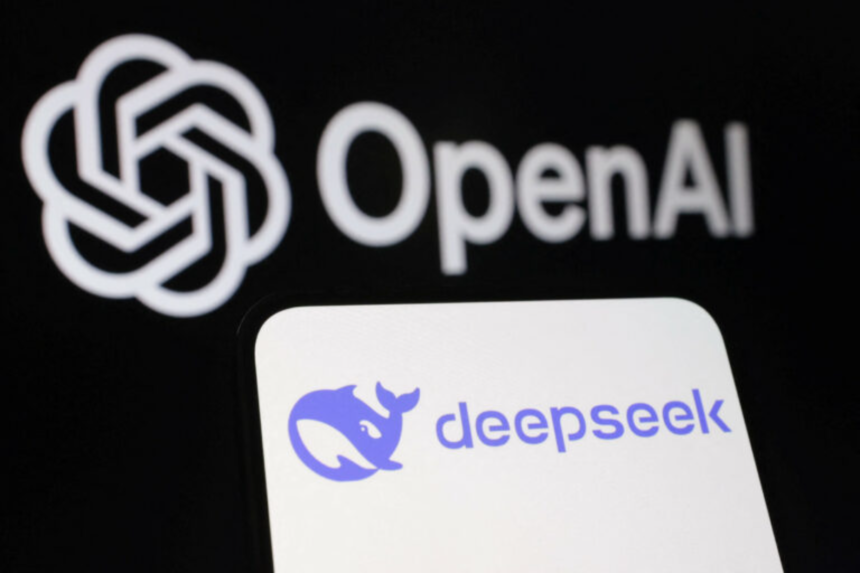Stocks in major American tech companies dropped after the rapid rise of a low-cost chatbot developed by a Chinese artificial intelligence (AI) firm.
The DeepSeek application, launched last week, has surpassed competitors, including OpenAI’s ChatGPT, to become the most downloaded free app in the United States.
American tech giants, including AI chip maker Nvidia, Microsoft, and Meta, all saw their stock prices decline on Monday.
The Chinese app is said to have been developed at a much lower cost than its rivals, raising questions about the future of America’s dominance in AI and the scale of investments American firms are planning.
Last week, OpenAI joined other firms in pledging $500 million to build AI infrastructure in the U.S.
President Donald Trump, in one of his first statements since returning to office, referred to it as “the largest AI infrastructure project in history,” which would help maintain the “future of technology” in the U.S.
DeepSeek is powered by the open-source DeepSeek-V3 model, which researchers claim was developed for around $6 million—significantly less than the billions spent by its competitors.
However, this claim has been challenged by others in AI.
Researchers say the technology relies on already existing tech, as well as open-source code—software that can be used, modified, or distributed by anyone for free.
The emergence of DeepSeek comes as the U.S. is limiting the sale of advanced AI chips to China.
To continue their work without a steady supply of imported advanced chips, Chinese AI developers have shared their work with one another and experimented with new approaches to technology, BBC reports.
This has led to AI models that require much less computing power than before, meaning they cost far less than previously thought, which has the potential to disrupt the industry.
After the DeepSeek-R1 model was launched earlier this month, the company boasted that its performance was on par with one of OpenAI’s latest models when used for tasks like math, coding, and natural language reasoning.
Silicon Valley entrepreneur and Trump advisor Marc Andreessen referred to DeepSeek-R1 as the “Sputnik moment of AI,” referencing the Soviet Union’s launch of its satellite in 1957, when the U.S. was considered caught off-guard by their technological achievement.
The sudden popularity of DeepSeek has startled stock markets in Europe and the U.S.
ASML, the Dutch chip equipment maker, saw its stock price fall by more than 10%, while shares in Siemens Energy, which manufactures AI-related equipment, dropped by 21%.
“The idea of a low-cost Chinese version hasn’t exactly been at the forefront, so the market has been caught off guard,” said Fiona Cincotta, senior market analyst at City Index.
“So, if you suddenly get this low-cost AI model, it raises concerns about the profits of competitors, especially given how much they’ve already invested in more expensive AI infrastructure.”
Wall Street banking giant Citi warned that while DeepSeek could challenge the dominant positions of American companies like OpenAI, the challenges facing Chinese firms could hinder their development.
“We assess that in an inevitably more restrictive environment, U.S. access to more advanced chips is an advantage,” analysts said in a report.







